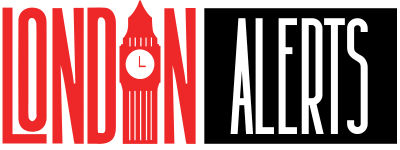
Unlock the Editor’s Digest for free
Roula Khalaf, Editor of the FT, selects her favourite stories in this weekly newsletter.
South Africa’s African National Congress said on Thursday it will invite the country’s other political parties to the negotiating table to try to form a government of national unity.
The move comes after a watershed election last week in which the liberation party of Nelson Mandela, which had governed South Africa since the end of apartheid 30 years ago, lost its parliamentary majority.
After an 11-hour special meeting of the ANC’s top decision-making body, the national executive committee, the party and country president Cyril Ramaphosa said the decision reached was to “invite political parties to form a government of national unity to move our country forward”.
Ramaphosa referred to Mandela’s first democratic government, formed in 1994, which included the defeated National party as well as the Inkatha Freedom party.
“In establishing a government of national unity, we will be drawing on an experience with which South Africans are familiar and which served our country well at a time of great difficulty,” he said.
The ANC won 40.2 per cent of the vote in the parliamentary elections last week. Ramaphosa said the ANC had already held preliminary talks with a number of parties, including the Democratic Alliance, which secured 21.8 per cent of the vote; the Economic Freedom Fighters, led by Julius Malema, which won 9.5 per cent; and the Inkatha Freedom party, which obtained 3.8 per cent.
“We do have ideological and political differences with several parties in our political landscape, however, we will not preclude the possibility of working with any party so long as it is in the public interest,” he said.
Political analysts have warned that a government of national unity could be difficult to agree because the DA has laid down a clear “red line”. It has said it would not be part of any government that includes the EFF or Jacob Zuma’s uMkhonto weSizwe Party (MK). The EFF has called for the nationalisation of the central bank and the country’s mines.
Peter Attard Montalto, managing director of financial consultancy Krutham, said if the DA stays out of a unity government, financial markets would take a heavy hit.
Attard Montalto said Ramaphosa’s preference for a unity government was an attempt to force a “national dialogue to help make decisions his party cannot make”. If the DA remains firm in its decision not to work in any government with the EFF, “we might get stuck with an unsavoury outcome”, he added.
The ANC had considered other options, including a looser “supply and confidence” agreement with the DA and IFP, but there had been an outcry from some ANC members, as well as its alliance partners, the Congress of South African Trade Unions and the South African Communist party.
MK, the third-largest party and led by the country’s former president Zuma, had previously said it would not participate in any talks with the ANC unless Ramaphosa resigned. It won 14.6 per cent of the vote.
Earlier on Thursday, however, MK said in a statement on X that it had held “engagements” with the ANC regarding a coalition. Zuma’s party also said it planned to have a further meeting with the ANC where it would “hear the views presented with an open mind”.


